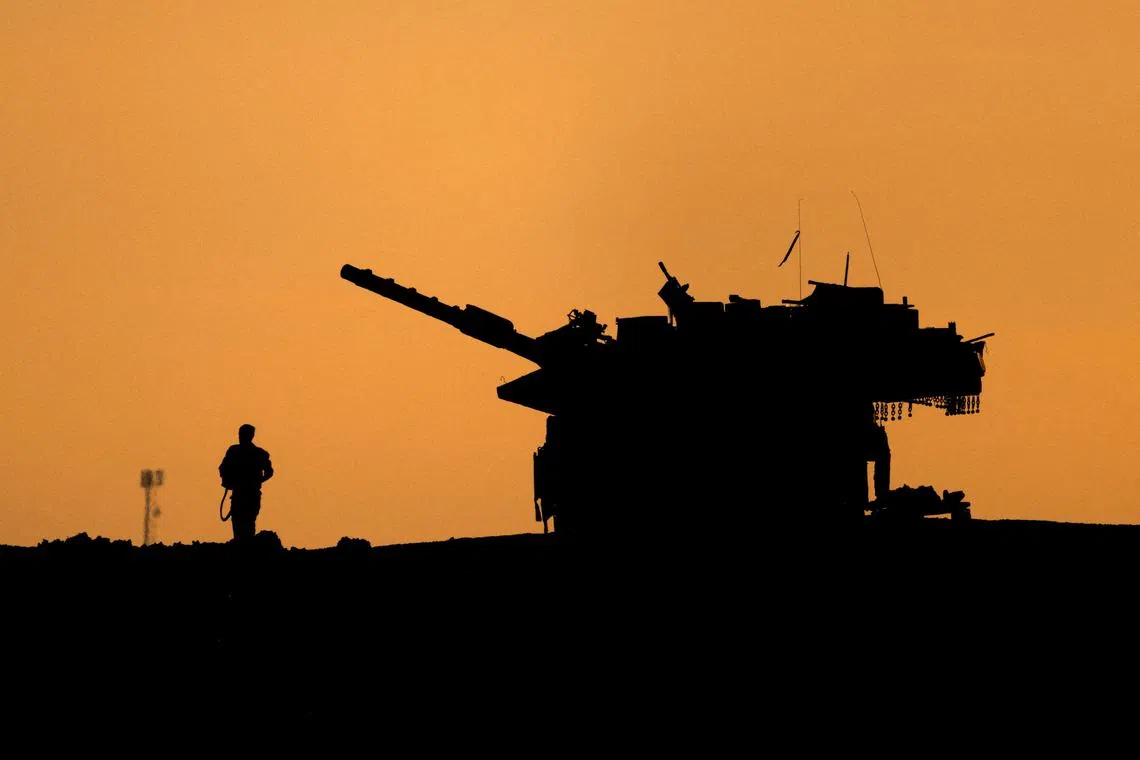Hamas and Israel blame each other for ceasefire delay
Sign up now: Get ST's newsletters delivered to your inbox

Medics said Israeli military strikes killed at least 24 people across the Gaza Strip on Dec 25.
PHOTO: REUTERS
JERUSALEM - Palestinian militant group Hamas and Israel on Dec 25 traded blame over failure to conclude a ceasefire agreement despite progress reported by both sides in past days.
Hamas said Israel had set new conditions, while Israeli Prime Minister Benjamin Netanyahu accused the group of going back on understandings that had already been reached.
“The occupation has set new conditions related to withdrawal, ceasefire, prisoners, and the return of the displaced, which has delayed reaching the agreement that was available,” Hamas said.
However, Hamas said it was showing flexibility and that the talks, mediated by Qatar and Egypt, were going in a serious direction.
Mr Netanyahu countered in a statement: “The Hamas terrorist organisation continues to lie, is reneging on understandings that have already been reached, and is continuing to create difficulties in the negotiations.”
Israel will, however, continue relentless efforts to bring home the hostages, he added.
Israeli negotiators returned to Israel from Qatar on the evening of Dec 24 for consultations about a hostage deal after a significant week of talks, Mr Netanyahu’s office said on Dec 24.
The US and Arab mediators Qatar and Egypt have stepped up efforts to conclude a deal in the past two weeks.
Israeli Defence Minister Israel Katz, speaking with commanders in southern Gaza, said on Dec 25 that Israel will retain security control of the enclave, including using buffer zones and controlling posts.
Hamas is demanding an end to the war, while Israel says it wants to end Hamas’ rule of the enclave first, to ensure it will no longer pose a threat to Israelis.
Israel keeps up military pressure
Meanwhile, Israeli forces kept up military pressure on the Palestinian enclave. Medics said Israeli military strikes killed at least 24 people across the Gaza Strip on Dec 25. One of the strikes targeted a school sheltering displaced families in Gaza City’s suburb of Sheikh Radwan, they added.
The Israeli military said it struck a Hamas militant operating in the area of Al-Furqan in Gaza City.
Several Palestinians were killed and wounded in the Al-Mawasi area, an Israeli-designated humanitarian zone in Khan Younis in the southern Gaza Strip, where the military said the strike targeted another Hamas operative operating there.
The Health Ministry in Hamas-run Gaza said Israeli forces continued to besiege the only three barely operational hospitals in the northern edge of the enclave, surrounding Beit Lahiya, Beit Hanoun and Jabalia.
The Israeli army forced officials at the Indonesian Hospital to evacuate patients and staff on Dec 24 and continued to operate in the vicinity of the nearby Kamal Adwan Hospital. They also ordered that the hospital be evacuated, but officials there refused, citing risks to dozens of patients.
Israeli troops were operating in the vicinity of the hospital for the past two days. An Israeli security official said the area was a Hamas stronghold.
“Kamal Adwan is at the heart of the most complex fighting in Jabalia,” he said. “We are being very careful.”
Palestinians accuse Israel of seeking to permanently depopulate northern Gaza to create a buffer zone, which Israel denies.
The war was triggered by Hamas’ Oct 7, 2023, attack
Israel’s campaign against Hamas in Gaza has since killed more than 45,200 Palestinians, according to health officials in the enclave. Most of the population of 2.3 million have been displaced and much of Gaza is in ruins. REUTERS


